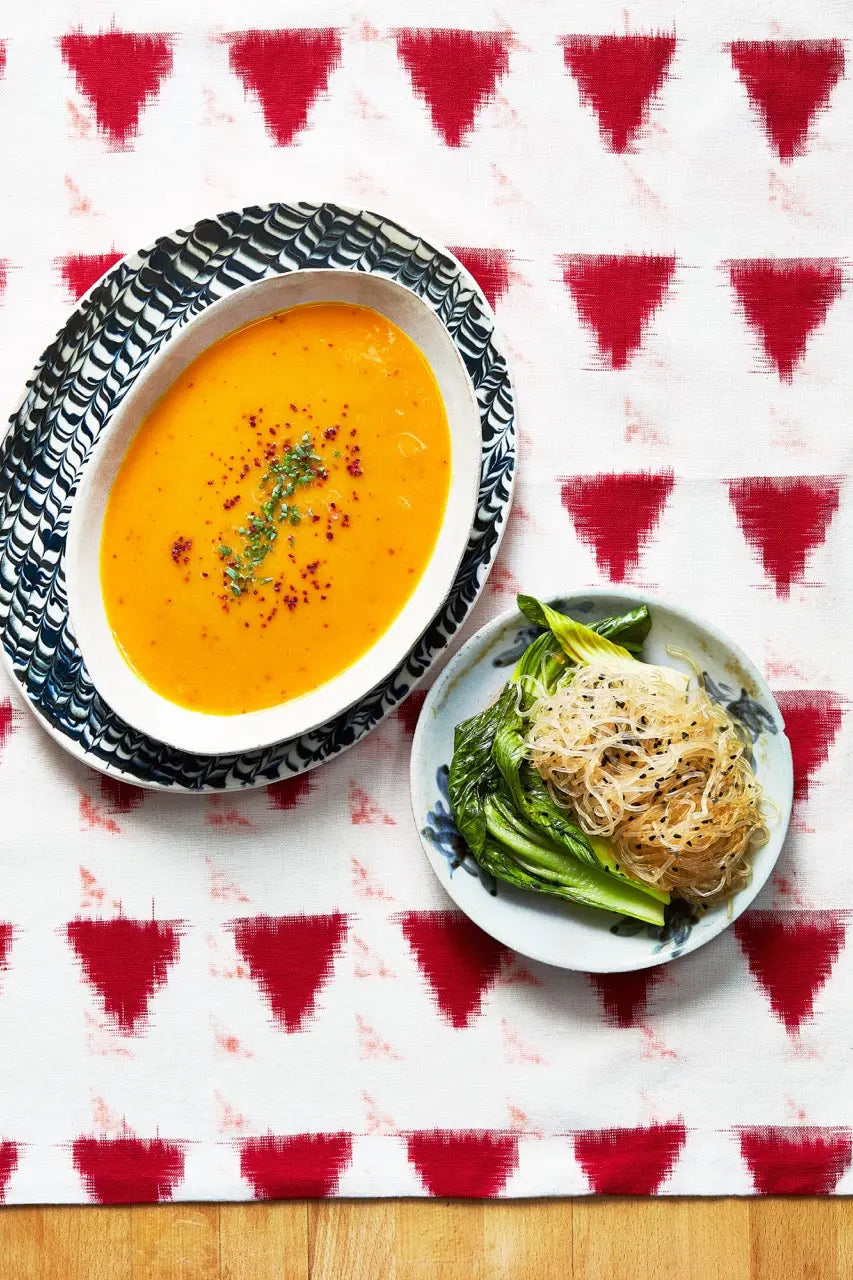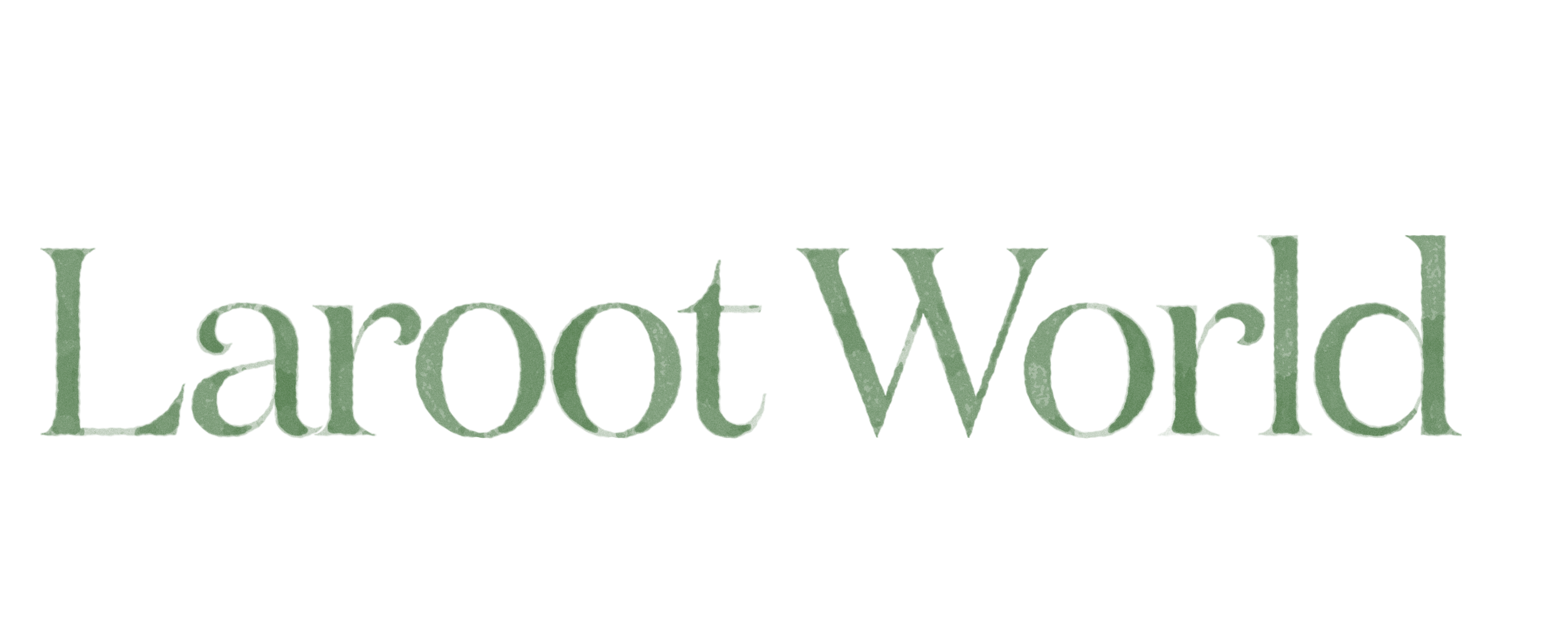Dish highlight: The KC Soup and Japchae

In Korea soup is a love language in itself. There are four words for it (guk, tang, jigae and jeongol), and one to honor every celebratory occasion. Served year round as both a main and a side, it brings warmth, comfort and readily available nutrition to any meal whatever the weather. While it can be a stand alone feature of breakfast, lunch or dinner, it can also be added to rice, noodles and other more substantial mains. Paired with japchae noodles, our signature KC soup combines traditional Korean flavors of coconut, turmeric and ginger (two synergistic earthy roots that boost immunity and fight inflammation) with accents of orange and aleppo pepper, carrying an expertly-layered taste and nutritional profile. Its super power? Perfectly roasted carrots packed with natural sweetness and beta carotene, their uplifting orange pigment that’s a precursor of vitamin A (one of the four essential fat-soluble vitamins) and supports myriad key functions within the body. You can learn more about this vital nutrient below.

Beta-carotene is previtamin A - a compound that can be metabolized into vitamin A as retinol, retinaldehyde and retinoic acid. These are all important for optimal eye, vision and retina health as well as reproduction and cell growth. Carotenoids also act as antioxidants, and may provide protection against cancer, cognitive decline and cardiovascular disease caused by oxidative stress – an increasing factor in disease and aging in our rapidly upgrading modern world. Research also shows that a diet rich in carotenoids, and especially beta carotene, may reduce the risk of breast cancer in premenopausal women.
While you can obtain your carotenes from supplements, too much vitamin A is toxic to the human body: an added benefit of consuming it through dietary sources is that we only convert as much as we need. Remember too that since it is one of the four essential fat-soluble vitamins (A,D,E,K), some dietary fat is essential for absorption.
While the preformed vitamin A retinol is found in animal products (liver being king, followed by tuna and egg), many plant foods contain beta carotene. Carrots contain the most, with butternut squash, spinach and cantaloupe melon following. Other sources include apricots, broccoli, spinach, sweet potatoes and kale.

Quick and tasty Korean carrots, three ways:
-
Morkovcha is a Russian carrot salad whose roots lie in Korean migrant cuisine: simply marinade grated carrot in oil, garlic, sugar, salt, vinegar and spices (coriander seed, black pepper, chili).
-
Gochujang is Korean fermented chili paste and a match made in heaven for roasted carrots. Recreate your own express glaze using chili paste or flakes and oil, honey, tamari, vinegar and sesame.
-
Ancestral probiotic ferment kimchi is a Korean staple and carrots work well for it; if you don’t have time for the whole process but crave the flavor, create a quick alternative by mixing shredded cabbage and carrot with a paste of onion, chili flakes, garlic, ginger, sugar and fish sauce.
